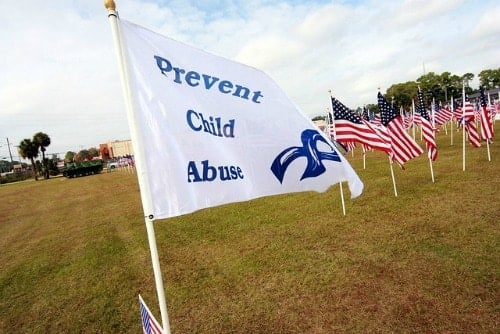
by Nihad | Apr 16, 2014 | 2014, Childhood, Egypt, Human Rights, Kids, Teenagers, The Advocates of Human Rights, Tragedy
 Zeina was a 5-year-old girl living with her family in Port Said, a city on the Suez Canal in Egypt. She was the youngest of three children.
Zeina was a 5-year-old girl living with her family in Port Said, a city on the Suez Canal in Egypt. She was the youngest of three children.
One fateful day, Zeina was playing in front of the door of her apartment. The porter was going to the roof of the building and by chance, the lift stopped at the floor where Zeina was playing. He found her playing alone with no one watching her, so he took the girl with him to the roof. On the roof was another guy, a friend of the porter, waiting for him. There was something on their minds that Zeina didn’t and couldn’t possibly know.
Their intention was to violate the innocence of that beautiful and chubby child. They wanted to rape her, but they couldn’t as she started to scream. They then quickly realized that her mother had found out that she was missing and all the buildings’ inhabitants had started looking for her in the street. To hide what they had done, the two guys decided to get rid of Zeina, so they threw her from the seventh floor to the back of the building.
The cold-hearted criminals then came downstairs pretending not to know anything about her and went to look for Zeina with the family. The family eventually found the little girl bleeding in the back area of the building and took her to the hospital but she died. The police investigated, found Zeina’s killers and arrested them. They were accused of killing her.
The family—as did everyone following Zeina’s story—expected the criminals to be condemned to death but instead they were condemned to only 15 years in jail. It was shocking for all of us but the problem is that the two accused guys were a few months under age 18 and there is a law that prevents condemning any young man below 18 to death no matter what his crime is.
The criminals were laughing, smiling and showing the victory sign inside their cell, while Zeina’s poor mother was screaming and crying very hard. The judge apologized to Zeina’s family as he could do nothing about it, it’s the law. Even the father of one of the killers said “My son deserves to be condemned to death 5 times for his crime”.
The story of Zeina summarizes the story of hundreds, thousands or maybe millions of children who are sexually abused every day all over the world.
And sadly, Zeina’s story is not the only one. A few months later another little girl named Hoda was raped mercilessly, choked to death and beaten with a stone to her head. Hoda was just 4.5 years-old playing in front of her house in her village in Meniah, a city in Upper Egypt. Hoda was raped and killed by her neighbor. Her dead body was found totally naked and bleeding in a house under construction.
A few days before Hoda was raped and killed, Eman a 13 years old girl was killed as well. The criminal choked her to death after failing to rape her and to be sure she died he stabbed her with a knife several times and then threw her body in the canal. Her family found her the following day, floating on the surface of the water. The guy accused of her murder is her father’s cousin, a member of the family. Hoda and Eman’s murderers may be condemned to death as they are over 18 years old.
Every few weeks we wake up with another story of a new Zeina in the newspapers, a young child or a teenage girl who is raped and killed mercilessly by a teenager or an adult. Not only has the child been put through horrors no one should know, but the whole family continues to suffer the pain of loss and the guilt of not being able to protect their child.
Zeina’s mother on TV, apologized to her young daughter for not being there to protect her and save her when she was screaming and calling for help. I couldn’t control my tears when I watched that. Sometimes there is also shame on the family’s part that their daughter has been raped. This is especially true in rural areas. Eman’s family was relieved when they realized that the criminal failed to rape her. It was obvious in their words when they announced that on the TV with great pride and honor.
Sexual abuse against children is something that any family could fall victim to because we seem unable to protect children from it`. There seems to be no end in sight for the heartbreak that families have to cope with when their innocent child is violated or hurt.
ًFor me, what is shocking about these crimes is that when the criminal is under 18 years old he is considered a child and the Egyptian child law (according to The Convention on the Rights of the Child, CRC) can’t condemn any of them to more than 15 years in jail no matter what their crime is.
This law protects the criminal child but what about the victim child? Aren’t we aggrieving them? Don’t they and their families deserve more justice and more sympathy? How can a law protect the rights of the criminal and ignore the rights of the victim?
Have there been any similar crimes in your country? What were your feelings about how the victim’s family viewed the situation?
This is an original post for World Moms Blog by Nihad from Alexandria, Egypt. Nihad blogs at Aurora Beams Life Coaching.
Photo credit: Bruce Tuten

Nihad is an Egyptian woman, who was born and has lived her whole life in Alexandria, Egypt. She says, “People who visited this city know how charming and beautiful this city is. Although I love every city in Egypt, Alexandria is the one I love the most.”
She is a software engineer and has worked in the field for more than twenty years. But recently she quit her job, got a coaching certificate and she is now a self employed life and career coach. She says, “I believe that women in this era face big challenges and they are taking huge responsibilities. That's why I have chosen my niche -- women looking for happiness and satisfaction. I help and support them in making whatever change (career change, life change, behavior change, belief change…) they want to bring more satisfaction and happiness in their lives.”
Nihad is a mother of two lovely boys, 15 and 9 years old. She states, “They are the most precious gifts I have ever had. I madly love them, and I consider them the main source of happiness in my life.”
Our inspiring mother in Egypt can also be found at Aurora Beams Life Coaching.
More Posts

by Mama B (Saudi Arabia) | Apr 9, 2014 | 2014, Family, Husband, Kids, Life Balance, Marriage, Parenting, Saudi Arabia, Working Mother, World Moms Blog
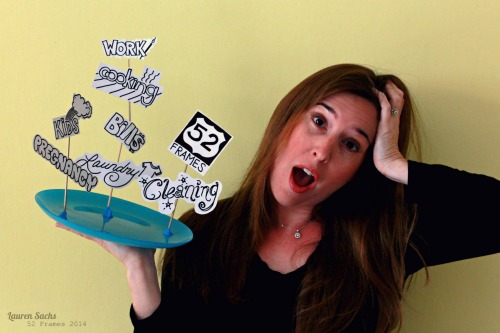
I never really had a paying job. In fact, I still don’t.
I started a new business and as anyone who has taken the leap and started a business knows, that doesn’t mean you’re getting paid or will get paid any time soon. For the first time in my life I have “job job”. And to tell you the truth, this is not how I imagined it would be.
This was my plan: Have a dream (check), work really hard to achieve it (check), be happy…
Now, I’m proud. I’m excited. I’m feeling engaged and doing something I love. The problem is that I’m having trouble finding the happy. I find myself with a full time job that seeps into my thoughts at nights, on weekends, on family vacations and during school plays.
To put things in perspective here is what my life was before this: I had a husband who I saw often. I had time to sit with him, talk to him and watch TV together. I used to be available for him. I also have 4 children for whom I was always available for as well. I played with them, picked them up from school and did homework with them. In fact, if I wasn’t home in the morning I was most probably at their school on the PTA or volunteering in the library (yes) and enjoying it. I volunteered at Saut Down Syndrome School. I was very good at staying in touch with my extended family. I was so good that I was at every family thing we had. Always!
When I started properly working on making my vision a reality, I worked all the time with the “excuse” of it being the beginning. I kept telling myself that it takes this much effort to make it happen. Then it didn’t let up. In fact it got worse.
I have always formed my opinions of working mothers from the cushiness of my ‘stay at home but work when I want to’ life. My opinion was that it was totally valid for a woman to stay home with her children and that it was, if not impossible, then unbelievably difficult to be fully available to your children and husband while working. Why men don’t have to think of being fully available to their wives and children is beyond me but we are being honest and this is what goes through my mind. It may be because while I don’t have to work for us to live he does, so the least I can do is be available when he does come home from work.
I never actually thought about this issue from the point of view of the working mother. Does every working mother constantly feel like she is failing her family because of her work? I do. Always. Every day. It’s gotten to a point that it puts a damper on any success I have in my work life because I know it came at the cost of time spent with my family.
It hasn’t gone unnoticed by my family either. They are missing me and feeling the difference in their day to day life. The upside is that I guess I know I’m wanted and needed. It does however makes the vision I had for my professional life blurry and a little less important every day.
What kills me more is that I don’t have to do this. I just want to. I am very proud of what I have accomplished and grateful for all the help that seems to have walked into my life to aid me in making this all work. At times I take it as a sign that I have to do this because of all the doors that opened up to me when I seriously started working on it.
It’s a strange feeling to be so proud of something I have accomplished but at the same time feel ashamed of the sacrifices I have made to get there.
It has been 6 months since this change in my life began and now I’m finding it harder and harder to come to terms with how much of my life it has taken up. I have a business I have committed time and money to, AND a family I feel I ‘m letting down daily.
So here’s my plan: Hire people who can take a load off of, so I can pick my kids up from school and see my husband while I still have enough energy to engage with them! It may be easier said than done but I will try and find a balance.
Is there such a thing as a balance between working and being a mother?
Does one have to suffer in order for the other to prosper?
Mostly, is it fair for me to do this at the expense of time spent with my children and husband, especially since I don’t have to, I just want to?
This is an original post for World Moms Blog by Mama B from Saudi Arabia. She can be found writing at her blog, Ya Maamaa.
Photo Credit to Lauren Sachs.

Mama B’s a young mother of four beautiful children who leave her speechless in both, good ways and bad. She has been married for 9 years and has lived in London twice in her life. The first time was before marriage (for 4 years) and then again after marriage and kid number 2 (for almost 2 years). She is settled now in Riyadh, Saudi Arabia (or as settled as one can be while renovating a house).
Mama B loves writing and has been doing it since she could pick up a crayon. Then, for reasons beyond her comprehension, she did not study to become a writer, but instead took graphic design courses. Mama B writes about the challenges of raising children in this world, as it is, who are happy, confident, self reliant and productive without driving them (or herself) insane in the process.
Mama B also sheds some light on the life of Saudi, Muslim children but does not claim to be the voice of all mothers or children in Saudi. Just her little "tribe." She has a huge, beautiful, loving family of brothers and sisters that make her feel like she wants to give her kids a huge, loving family of brothers and sisters, but then is snapped out of it by one of her three monkeys screaming “Ya Maamaa” (Ya being the arabic word for ‘hey’). You can find Mama B writing at her blog, Ya Maamaa . She's also on Twitter @YaMaamaa.
More Posts

by Mannahattamamma (UAE) | Mar 19, 2014 | 2014, Computers, Cultural Differences, Culture, Education, Expat Life, Government, Homeschooling, Living Abroad, Multicultural, Older Children, Politics, Religion, School, Social Media, Traditions, UAE, USA
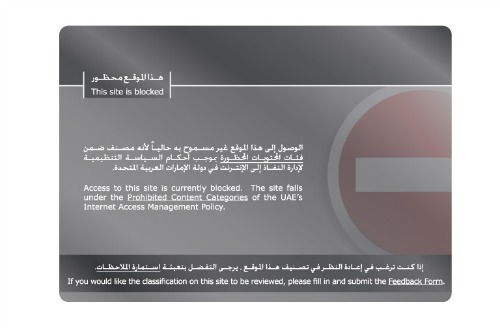 I always swore I would never home-school my children. I know many people do, and do it quite successfully, but I’m awfully fond of the quiet that descends on my house after they’ve tromped off to school. If that tromping were only happening from the bedroom to, say, the kitchen table, I think I might simply lock myself in the bathroom and never come out.
I always swore I would never home-school my children. I know many people do, and do it quite successfully, but I’m awfully fond of the quiet that descends on my house after they’ve tromped off to school. If that tromping were only happening from the bedroom to, say, the kitchen table, I think I might simply lock myself in the bathroom and never come out.
But as so often happens, my vow has collided with reality and I have found myself, in recent weeks, trolling home-schooling websites in search of teaching resources. My kids are now 9 (nine and a half, he would say indignantly) and 13; they go to a British school here in Abu Dhabi. That means they’ve spent a lot of time learning various English kings and queens, although they can’t recite them all in order. They study “maths,” and do prep rather than homework; they study English history and geography; they read mostly English writers in their literature classes. In addition to all those Anglo studies, they take Arabic language classes four days a week and once-weekly class called “Islamic Studies.” The Arabic classes are mandated by ADEC (Abu Dhabi Education Council) and I have to say, I’m much more interested in my kids learning Arabic than I am in their ability to name all the English kings and queens.
Having the boys be in an English system has been a learning curve for all of us. We’re learning two languages, actually, Arabic and, well, English: the boys now live in a world where things are “grey,” luggage goes in the “boot,” and we put garbage in the “bin.”
I’m not considering a dabble in the home-schooling system in order to beef up my boys’ appreciation of the Queen’s English, however. My kids, like every schoolchild in the country, have a curriculum that is at least in part determined by the UAE government, and that means there are things that aren’t supposed to be taught. I live in a place where censorship happens and where, unlike the States, the policies cannot be overtly challenged in the courts. So, for instance, in the States if you live in a town where they want to ban the Harry Potter books, you can take the school district to court. Not here.
We had to sign a permission slip so that our older son could get the science textbook that included the chapter on reproduction (with pictures of, you know, the embarrassing bits); his Latin class translates vinum as … grape, not wine. These are relatively small annoyances, although of course they are far from ideal.
There are, however, more serious concerns in terms of what shouldn’t be included in history courses and literature courses, and that’s where I find myself trolling the home-schooling sites for resources. The Holocaust can’t be taught here; Israel and Judaism are not supposed to be mentioned here; communism isn’t supposed to be discussed; evolution isn’t supposed to be taught; and the list goes on. Sometimes it feels as if we’re living in some kind of Bible-thumping town in the rural U.S and I realize, yet again, that fundamentalism can be seen as a global phenomenon that differs only in the nature of its prohibitions: the fear that motivates the prohibitions stays constant.
Before you leap to any conclusions, please know that the Muslim families I know are as frustrated by these government-issued edicts as are the non-Muslim families and many of us have talked together about what we can do to help our children gain a full picture of the world, regardless of what the government says. So it is that what in some contexts (living in Manhattan, for instance) would be a purely theoretical discussion has become in our household, a very pragmatic series of conversations.
Think about it: how would you talk to your kids about censorship? Is censorship always bad? Think about your children, if you have them, and the internet: are there sites you say they can’t see, or have you put a filter or something on your computer to prevent certain kinds of access? Do we agree that there is such a thing as “good” censorship? (Because of that whole teenage-boy-surfing-the-internet thing, I see a (slight) upside to living in a “nanny state.” I am fairly sure that if he wanted to look, my son wouldn’t be able to find basic porn–not to say that if he really wanted to dig around he couldn’t elude the censors, but at this point, I think his porn-directed vocabulary is still too limited to get around the government blocks. I guess we file that under “thank goodness for small favors,” right? )
My husband and I are both professors, and so we are able to bolster and supplement what isn’t happening in school, but we are also having a lot of conversations with our kids about censorship, politics, and the necessity of thinking about things in ways that are different from how we might think about them. We point out that the UAE isn’t Saudi Arabia; there is no Taliban here; the country is not governed by a theocracy of any sort. We know Jewish families who live here; I know gay couples who live here; a Mormon family lives next door to us. I see people on the beach in the scantiest of scanty bathing suits.
Living here means coming to term with nuance, with ambiguity, with living in a world that is organized around “both/and,” rather than “either/or.” The country is progressive and conservative; censorship is a problem that has a context; learning happens as much from what is not there as it does from what is there. It’s complicated and let’s be honest — no nine year old, no thirteen year old—and very few adults—really likes ambiguity. After all, if there is no “in-between” answer, life becomes much easier, doesn’t it?
No, of course I’m not happy that my kids have a biology textbook with the word “pig” marked out. Of course, I’m also not pleased that the Anglo-centric curriculum also neglects things like the US Civil War, other than in the most general sense. But I will say that I think it is, and will continue to be, a powerful learning experience for my children (and us) to have to confront and think about what it means to live in a place where the government attempts to exert such extensive control. I like to think that, paradoxically, these attempts at censorship will make my children more open-minded adults.
Have you ever been confronted with censorship? How have you dealt with it?
After twenty-plus years in Manhattan, Deborah Quinn and her family moved to Abu Dhabi (in the United Arab Emirates), where she spends a great deal of time driving her sons back and forth to soccer practice. She writes about travel, politics, feminism, education, and the absurdities of living in a place where temperatures regularly go above 110F.
Deborah can also be found on her blog, Mannahattamamma.
More Posts
Follow Me:


by Susie Newday (Israel) | Mar 5, 2014 | 2014, Death and Dying, Israel, Susie Newday, World Motherhood
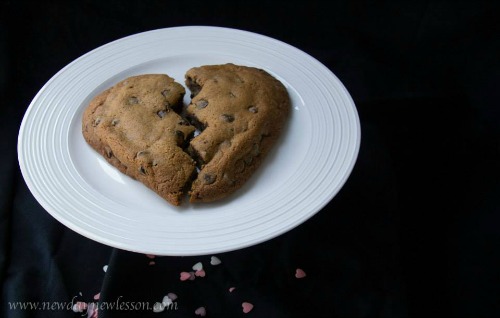
This past week has been a heartbreaking one for me. My courageous friend, Neta Eshel, passed away after a long battle with metastatic breast cancer. If you haven’t read it yet, please go read her interview and go get yourself tested.
As tragedy and heartbreak often do, Neta’s death has made me reflect on my life, on my mistakes and what I could have and could do differently, both professionally as an oncology nurse and as a person.
If there’s one thing that Neta has taught me it’s that while you don’t always control what life throws your way, you can control how you react to it. YOU get to write the story of your life, even if you are given certain guidelines.
There is, however, something more literal that I want to impart about writing the story of your life. Yes, your actions and the things you have done during your life are the legacy you leave behind. But let’s face it, once you die, does what you leave behind really make a difference to you? No, it doesn’t. Nonetheless, if you are at all loved and not a reclusive hermit, what you leave behind may make a world of difference to those struggling to fill the void you have left.
We all leave behind moments, but sadly, as time passes we need the tangible reminders of those moments. Without realizing it we all leave tangible reminders behind, be it pictures, recipes, artwork, journals or letters. I think that maybe we should be more cognizant of leaving meaningful things behind.
We should all be cognizant of this because, for good and for bad, we never know when our time is going to be up. For good, because it must be stressful and frightening to know you are dying. For bad, because you don’t have the time to say goodbye, and the people you leave behind don’t always have the closure they need.
Maybe the answer is writing an autobiography of sorts. An autobiography in progress, hopefully one that will have many chapters to capture the many happy and healthy years we will live. And it doesn’t have to be all words. It can be a photo album with captions. It can be a cookbook with anecdotes about the important moments in your life and the food that makes you happy. It can be a love story about how you met your spouse and started a family. It can be a reverse bucket list, listing all the things you have done in your life that you are proud of. It can be stories about your kids, your family or your friends.
Or, you can write it based on your hobbies. For instance, someone who loves books can pick their favorite books and explain what it was about those books that resonated with them and what lessons they taught them about life. Someone who loves arts & crafts can put together a tutorial of their favorite crafts. Someone who loves photography can put together a book of pictures with meaningful anecdotes or quotes. Someone who loves to travel can write a personalized travel guide.
Or like me, you can blog your thoughts. Although I’m coming to the realization that maybe even that is not enough because it’s not personal enough.
Simply put, the how is not important. What is important is to remember that whatever you choose to do, YOU get to write the story of your life. You get to, not have to, because it’s a privilege.
May we all be blessed to have the stories of our lives read by our kids, grandkids and great-grandkids whom we will have been fortunate to know and love for many years.
Do you think leaving behind the “story of your life” would make it easier for those who survive you?
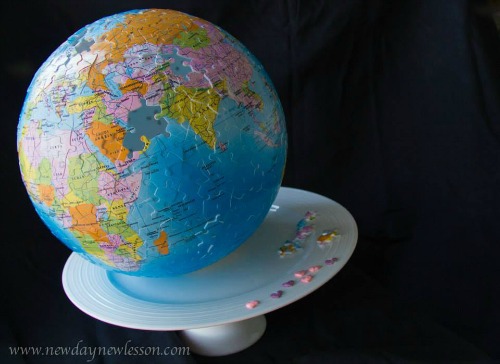
My Fifty-Two Frames photograph dedicated to Neta. (Click through to read the caption.)
This is an original post to World Moms Blog by our Africa and the Middle East Regional Editor, Susie Newday of “New Day New Lesson” in Israel.
Photo credits to the author.
Susie Newday is a happily-married American-born Israeli mother of five. She is an oncology nurse, blogger and avid amateur photographer.
Most importantly, Susie is a happily married mother of five amazing kids from age 8-24 and soon to be a mother in law. (Which also makes her a chef, maid, tutor, chauffeur, launderer...) Susie's blog, New Day, New Lesson, is her attempt to help others and herself view the lessons life hands all of us in a positive light. She will also be the first to admit that blogging is great free therapy as well. Susie's hope for the world? Increasing kindness, tolerance and love.
You can also follow her Facebook page New Day, New Lesson where she posts her unique photos with quotes as well as gift ideas.
More Posts - Website
Follow Me:





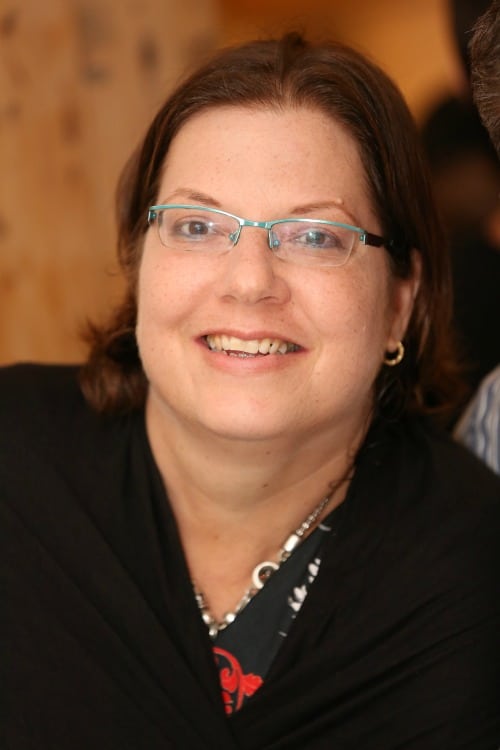
by World Moms Blog | Feb 27, 2014 | 2014, Cancer, Israel, World Interviews, World Moms Blog
It is with great sadness that we announce the death of a fellow World Mom, Neta. Neta, who was a good friend of our contributor, Susie Newday in Israel, lost her fight today with metatastic breast cancer. Our thoughts and sincere condolences from around the world are with her family and friends today.
Neta volunteered an interview about her life of living with metatastic breast cancer on World Moms Blog with the hopes of encouraging more mothers to get tested.

Neta sat down with World Mom contributor, Susie Newday in Israel to talk about living her life with metastasis breast cancer.
Goodbye, Neta. Thank you so much for letting us get to know you and for sharing what you knew with all of us. For that, we are forever grateful.
Neta’s 4 part interview of what it was like to live with metatastic breast cancer: Part I, Part II, Part III and Part IV.
— The World Moms Blog Community
World Moms Blog is an award winning website which writes from over 30 countries on the topics of motherhood, culture, human rights and social good. Over 70 international contributors share their stories from around the globe, bonded by the common thread of motherhood and wanting a better world for their children.
World Moms Blog was listed by Forbes Woman as one of the "Best 100 Websites for Women 2012 & 2013" and also called a "must read" by the NY Times Motherlode in 2013. Our Senior Editor in India, Purnima Ramakrishnan, was awarded the BlogHer International Activist Award in 2013.
More Posts
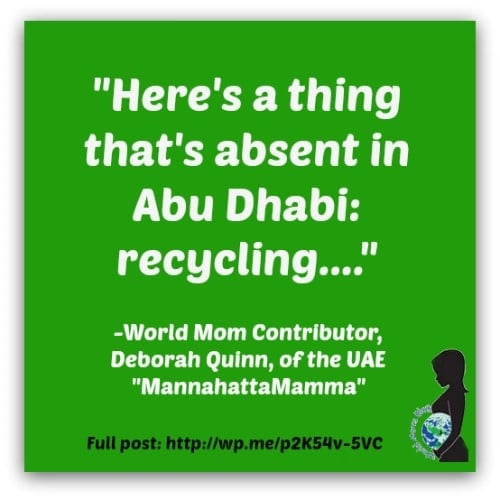
by Mannahattamamma (UAE) | Feb 12, 2014 | 2014, Education, Expat Life, Older Children, UAE, World Motherhood

I turned fifty last month.
See how calmly I said that? Just rolled right off my keyboard with nary a omigodhowdidigetsoold freakout.
Turning fifty in Abu Dhabi, where we’ve lived for the past three years, meant that my family couldn’t be with me to celebrate this milestone (millstone?). On the other hand, celebrating here in a place that still feels quite “new,” reminds me that I’ve avoided one of the big pitfalls of late middle age: falling into a rut. As a wise friend here pointed out to me, when you’ve just upped stakes and settled in a new country, culture, city, you’ve pretty much blown the “rut” wide open.
I’ve gotten used to many new things over our years here–buying Pop-tarts in the “pork room,” Sunday as the start of the work-week, no door-to-door postal service–but there are other things that feel more difficult to resolve, particularly when I think about what my kids are (or aren’t) learning as a result of living here. As with all things, of course, we start to figure out what really matters to us, as parents and as people, when we’re confronted with the absence of that thing.
Here’s a thing that’s absent in Abu Dhabi: recycling. Think about that for a minute, especially those of you who live in the US: think about the fact that it’s become almost second nature to separate your garbage, to flatten the cardboard, take the empty bottles back to the store, to look for products in environmentally-conscious packaging (unless that triples the price in which case…hmm…).
Not here. Oh sure, there are some “recycle” bins in public places, and in the housing development where we live, we have two garbage bins: one for “wet” garbage and one for “dry,” but we’ve watched as both bins get dumped, day after day, into the maw of the same truck. Plastic water bottles are ubiquitous but there isn’t anywhere to recycle them (which will explain why there are about 75 of them under my sink right now–and I think they’re breeding); gas-guzzling SUVs are the norm; and while there is talk about developing solar power here (in the land of eternal sunshine and heat you’d think that would be a no-brainer), nothing as yet has happened.
I use many of these problems as “teaching moments,” trying to explain to my kids about the importance of being environmentally conscious, but it’s been difficult to put anything into action, unlike when we lived in New York, where we took our compost to the farmer’s market to be turned into worm food, separated our trash, and so on.
And then for my birthday, my husband surprised me with two boxes. One was very small and contained things that sparkled. That box was just for me. The other box, much bigger and bulkier, contained a big plastic tub. Much less romantic, perhaps, but a gift for the whole family to–if not enjoy, then at least participate in: Bokashi.
Bokashi is a Japanese word that means fermentation, and bokashi is a method of composting food waste by sprinkling the scraps with “bokashi bran,” which encourages the fermentation process.
All our food scraps (meat, cheese, bread, coffee grounds) go into the bokashi bucket and when the bucket is full, we bury the contents of the bucket in our backyard (although there are other options; see the website for details).
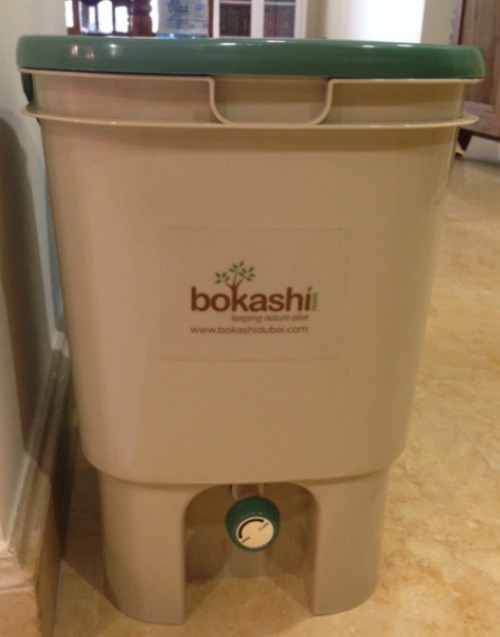
Now my kids have an additional chore: they are the food scrap patrol. Uneaten contents of lunchboxes don’t get dumped at school; they go into the bokashi. Dinner scraps, lunch bits, residue in cooking pots: bokashi, bokashi, bokashi. Not only does composting in this fashion show my boys how much food we throw away and (I hope) make them more mindful about food waste, the process going on inside the bucket is like an ongoing science lesson: molds and other micro-organisms, all right there in the kitchen bucket.
Will this at-home recycling help Abu Dhabi resolve its recycling crisis? Of course not, but at least we are teaching our children (I hope) that everyone can do a small something — and that if enough people do a small something, a Big Something might result. And that’s not a bad lesson –for kids or for fifty year olds.
Is recycling the norm in your country? What do you do to go “green” in your country?
This is an original post to World Moms Blog by Deborah Quinn in the United Arab Emirates of “Mannahattamamma.”
After twenty-plus years in Manhattan, Deborah Quinn and her family moved to Abu Dhabi (in the United Arab Emirates), where she spends a great deal of time driving her sons back and forth to soccer practice. She writes about travel, politics, feminism, education, and the absurdities of living in a place where temperatures regularly go above 110F.
Deborah can also be found on her blog, Mannahattamamma.
More Posts
Follow Me:


 Zeina was a 5-year-old girl living with her family in Port Said, a city on the Suez Canal in Egypt. She was the youngest of three children.
Zeina was a 5-year-old girl living with her family in Port Said, a city on the Suez Canal in Egypt. She was the youngest of three children.




















